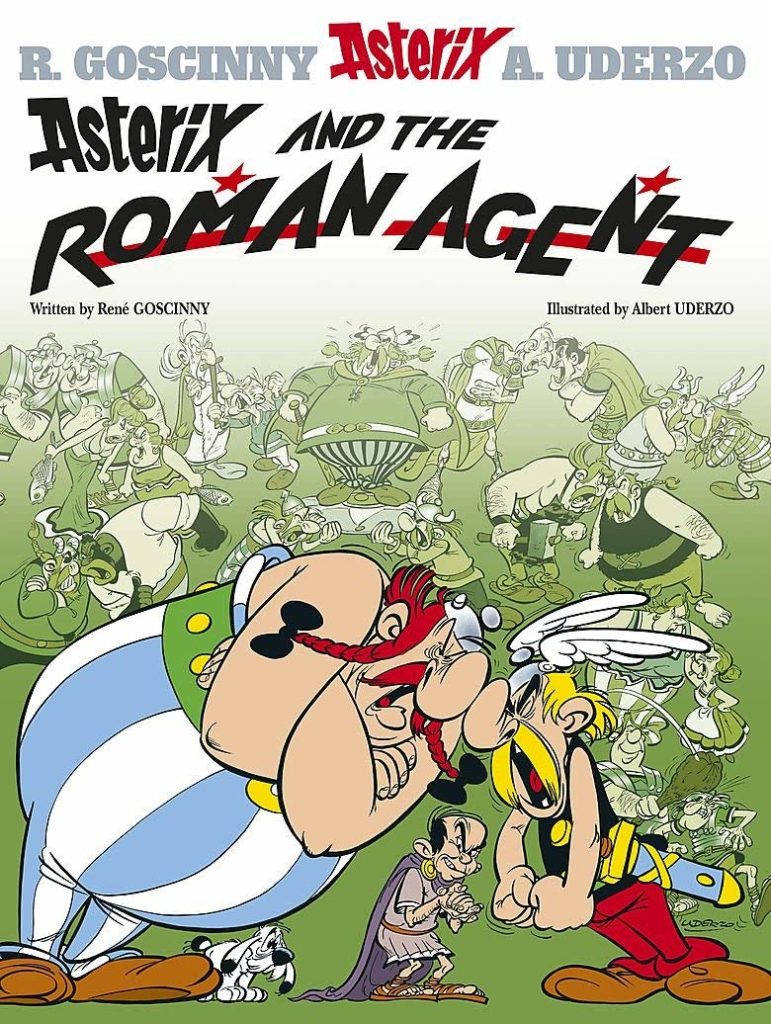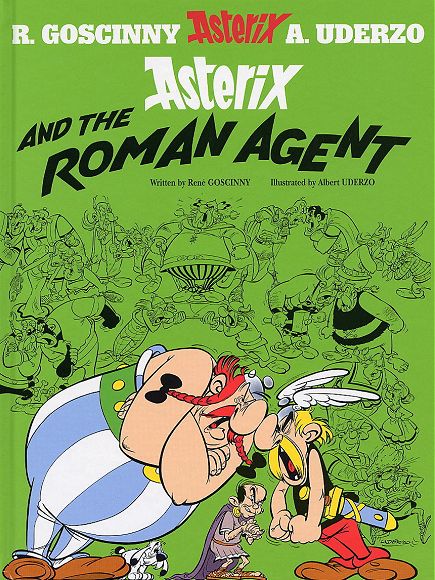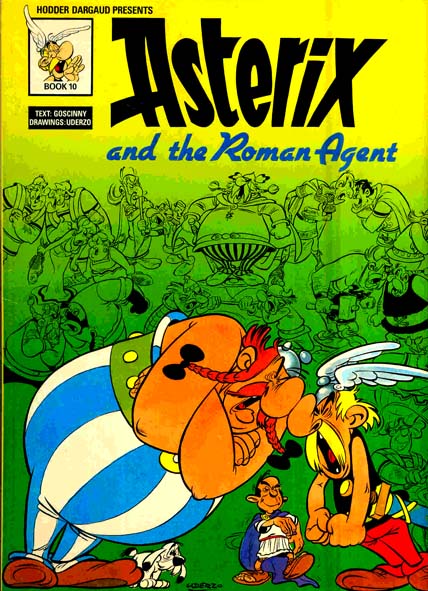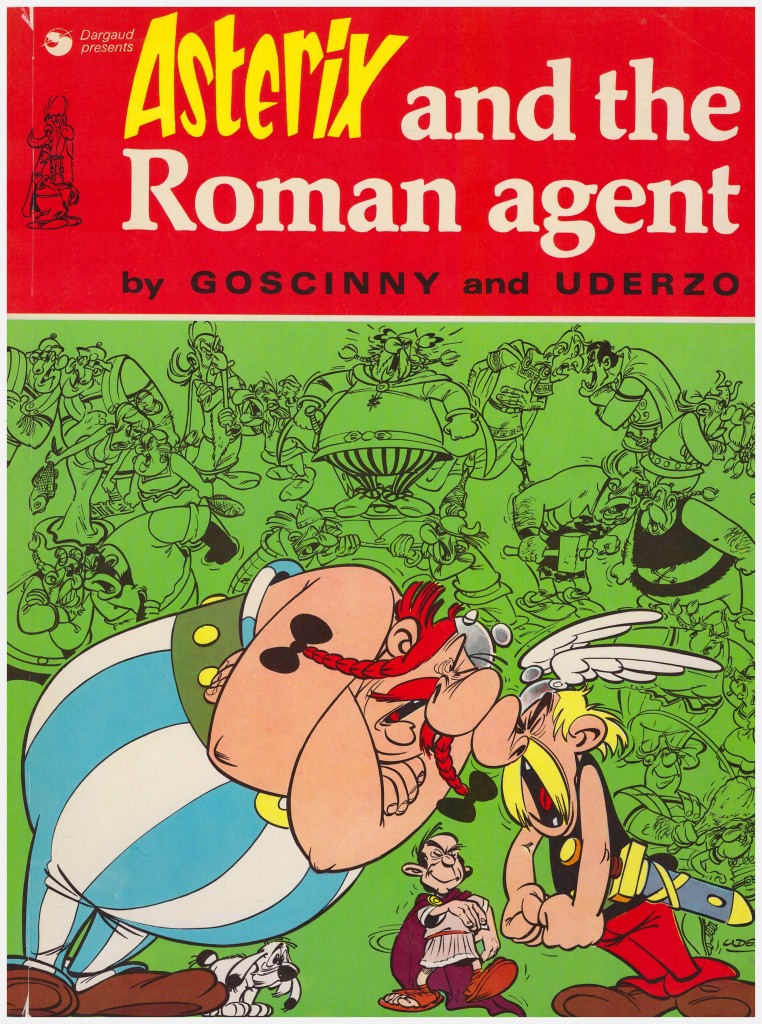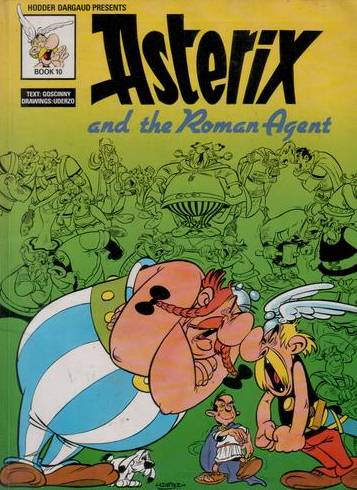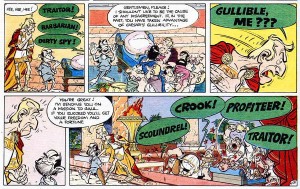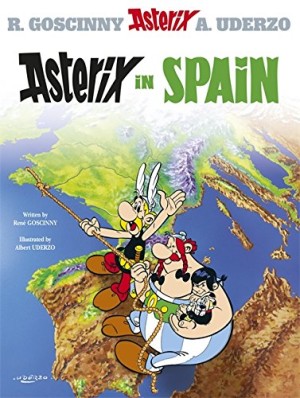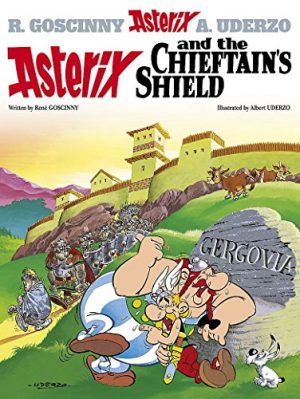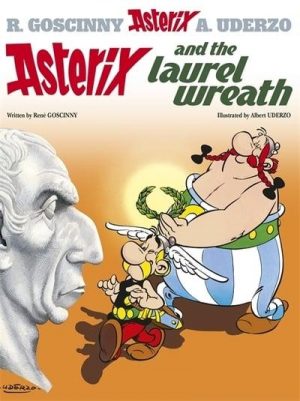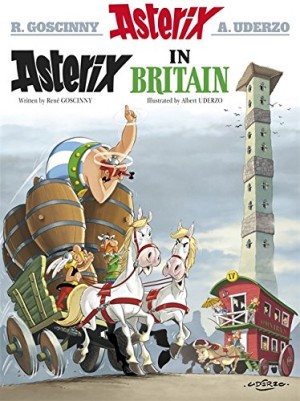Review by Frank Plowright
There’s a very strong case to made for Asterix and the Roman Agent being the best story of the best run in an excellent series.
Since introducing Asterix, René Goscinny and Albert Uderzo had considerably broadened and refined his supporting cast, yet that cast was generally only seen in the opening pages of each volume prior to Asterix and Obelix departing on a mission. Here they take centre stage, and another good recurring gag is added by introducing the wife of Geriatrix, the oldest man in the village. Furthermore, the problem the creators set for the villagers can’t be remedied by a swig of magic potion, and the book features a truly memorable villain.
It rankles with the Roman senate that Caesar consistently demands more funds to conquer new territories when one small part Gaul resists his armies. Yet all attempts to subdue the indomitable Gaulish village by traditional military manoeuvres have failed. It’s suggested he employ one Tortuous Convulvolus, a man with the innate talent of inducing discord, and witnessing his effect among the senators convinces Caesar. Convulvolus is dispatched to Gaul, sowing chaos along his route. For once Asterix and Obelix have no part in sinking the pirate ship.
Goscinny brilliantly builds upon the minor disagreements between the villagers, until almost all become festering bundles of resentment and jealousy, with only Asterix, Obelix and the Druid Getafix standing above the petty conflicts. Uderzo’s depiction of the Roman agent is masterful. He creates an ineffably smug balding little man, and to underline his effect the word balloons of the people he meets are coloured in varying shades of green graded to the intensity of the dispute fermented.
The Roman agent cleverly layers his initial deceit, until the villagers are convinced the Romans now possess the Druid’s magic potion, and Asterix has sold them the secret. The book is bulging with excellent gags, several involving the Chief’s wife Impedimenta. She considers her status entitles her to jump the queue at the fish shop, and rages at her husband “If anyone should be fool enough to write the story of our village they won’t be calling it the Adventures of Vitalstatistix the Gaul”. Near the end, believing themselves to have an advantage, the Romans from all four camps surrounding the Gaulish village unite to invade it. Uderzo masterfully displays the battle in a single landscaped and annotated page, throwing in the pirates for good measure.
Once they’d established their cast and formula Goscinny and Underzo hit such a rich vein of form, turning out one immaculately plotted, gag-packed, impeccably drawn book after another, that selecting the best of them amounts to personal choice. Asterix and the Roman Agent would be mine.
